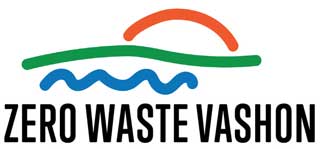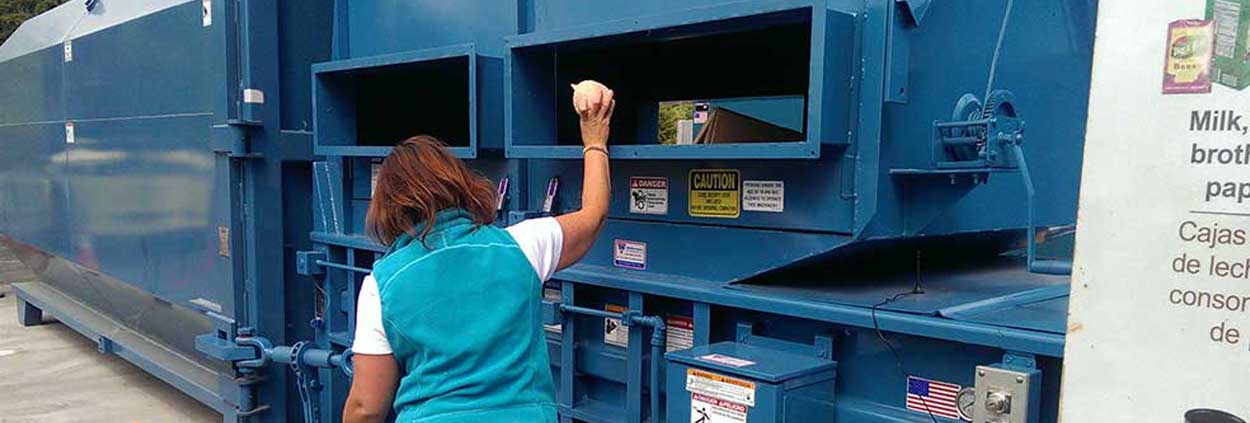ZWV asks
What’s happening with our recyclables?
Buy bulk and reduce packaging consumption to cut down recyclables
Questions asked by ZWV to King County Solid Waste Division – 7/18/18
Q: What is happening to our recyclables since China’s National Sword policy started?
A: Recyclable materials previously sent to China are being sent to other markets (e.g., India).
Q: Which recyclable materials are affected by China’s National Sword policy?
A: The recyclable materials most affected by the Chinese import restrictions are mixed paper (not including cardboard) and #3 – #7 plastics.
Q: Which recyclable materials are NOT affected by China’s National Sword policy?
A: The majority of our recyclable materials — yard waste, food waste, clean wood (lumber and pallets), metals (including scrap metal, aluminum cans, and steel/tin cans), textiles, corrugated cardboard boxes, glass bottles and jars, and #1 & #2 plastics — are NOT affected.
Q: Do you have any idea what percentage of our King County, Washington State, and/or USA recyclables are now being landfilled?
A: We do not have data about the amount of recyclable materials being disposed locally or at the state and national levels. However, the majority of recyclable materials are still being sent to markets (including to markets in India and other countries instead of China). Republic Services is the only hauler serving King County that has asked cities they serve to dispose of unmarketable materials (namely, mixed paper) on a temporary basis. Some cities in King County have granted Republic permission to dispose of unmarketable materials — and the permission is usually granted for a one month period. Recology-CleanScapes, Waste Connections, and Waste Management have not made similar requests.
Q: What happens to the recyclable materials being collected curbside?
A: The answer to that question depends on which company is providing the curbside collection service. We recommend you ask Vashon’s solid waste company – Waste Connections (Vashon Disposal) — for information about what is happening to each type of recyclable material collected curbside by Waste Connections.
Q: What happens to the recyclable materials collected at Vashon Recycling & Transfer Station?
A: See below.
- Yard and food waste are picked up by Cedar Grove Composting, taken to Cedar Grove’s Maple Valley facility, and used to make compost.
- Textiles are picked up by Goodwill. Reusable textiles are sold in Goodwill retail stores, and the fibers from torn, worn, and stained items (even single socks and shoes) are recycled into rags, sound-proofing, insulation, stuffing, and other products. (Textiles that are wet, mildewed, or contaminated with hazardous materials are not accepted.)
- Scrap metals and non-refrigerant type appliances (stoves, washing machines, etc.) are picked up by Metals Express and sold to metal companies. The scrap metals are used to make a wide variety of metal products.
- Major refrigerant-type appliances (refrigerators, freezers, air conditioners, etc.) are picked up by Total Reclaim which recovers, reclaims, and recertifies the refrigerant (chlorofluorocarbons or CFCs) and sells it to companies for use in air conditioning and refrigeration equipment. The metals, plastics, and glass are used by companies to make new products.
- Mercury-containing light bulbs and tubes, including fluorescent lights, are picked up by Eco-lights NW (managed by Total Reclaim). The mercury is recaptured and reused for other mercury-containing products. The glass is used as an aggregate for cement and the metals are sent to metal recyclers who use them to make a wide variety of metal products.
- Corrugated cardboard is picked up by Republic Services and sold to companies that use it to make a variety of paper products (cereal boxes, shoe boxes, and other paperboard products).
- Commingled materials including paper (office paper, mail, newspapers, magazines, cereal boxes, etc.), plastics containers, glass bottles and jars, and steel (tin) and aluminum cans are picked up by Republic Services, sorted at the company’s Material Recovery Facility, and sent to recycling markets. Mixed paper and #3 – #7 plastics are sent to international markets. Metal containers, glass bottles and jars, and #1 and #2 plastics (bottles and jugs) are sent to regional and national markets.
Q: What happens to polystyrene (also called Styrofoam)?
A: Polystyrene blocks (such as those used to package computers and TVs) and coolers (if empty, clean, and dry) are accepted by Styro-Recycle in Kent (http://www.styrorecycle.com/). The company grinds the material and extrudes it to form blocks, making it easier to stack and ship. Once a load of 40,000 pounds of processed material is produced, it is sold to manufacturers to be made into plastics products such as picture frames, light switch and outlet covers, crown molding, and electronic cases. Or it can be used to make new styrofoam. There is a styrofoam collection on the island on the first Sunday of the month at the Sheffield Bldg., 18850 103rd Ave SW. Check the event calendar for details.

